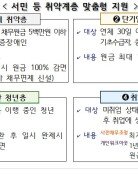Last week’s new COVID-19 cases in S. Korea are all Delta variant
Last week’s new COVID-19 cases in S. Korea are all Delta variant
Posted October. 21, 2021 07:22,
Updated October. 21, 2021 07:22
All new COVID-19 cases in South Korea last week were caused by the Delta variant from India.
According to the central disaster and safety countermeasures headquarters on Wednesday, all 3,245 cases during the recent week are found to be the Delta variant, which is 0.2 percentage points higher than the previous week. The test was conducted on 28.5 percent of all patients. However, the analysis reveals that practically all COVID-19 cases in the country are infected with the Delta variant.
Breakthrough infections are also on the rise among those who have completed vaccination more than 14 days ago. There is a total of 16,972 breakthrough infections in South Korea as of now, up 3,112 from a week ago. Among those who have completed vaccination, 0.073 percent have experienced breakthrough infections or 73.2 people per 100,000.
People in their 30s recorded the highest rate of breakthrough infections at 140.3 people per 100,000 while those who received the Janssen vaccine showed the highest rate at 243.5 people per 100,000, followed by AstraZeneca at 0.0845 percent, Pfizer at 0.0499 percent, and Moderna at 0.0055 percent.
The disease control authorities believe that people who haven’t been vaccinated will be the critical challenge in reducing COVID-19 cases and transitioning to the “With Corona” system. Currently, 83.6 percent of all new COVID-19 cases are unvaccinated. “There are over 10 million people who haven’t been vaccinated, including 1.48 million people of a high-risk group aged over 50 or older,” said an official of the Korea Disease Control and Prevention Agency.
The Delta-plus variant is a mutation of the Delta variant. It is as infectious as the Delta variant and has resistance to antibodies, undermining the effect of vaccines. According to The Financial Times, the Delta-plus variant is 10 to 15 percent more infectious than the Delta variant, which has become the dominant variant, in the U.K. Even in Israel, which began the administration of booster shots in July for the first time in the world, there was the country’s first case of the Delta-plus variant infection on Tuesday.
Keun-Hyung Yoo noel@donga.com · Eun-Taek Lee nabi@donga.com






